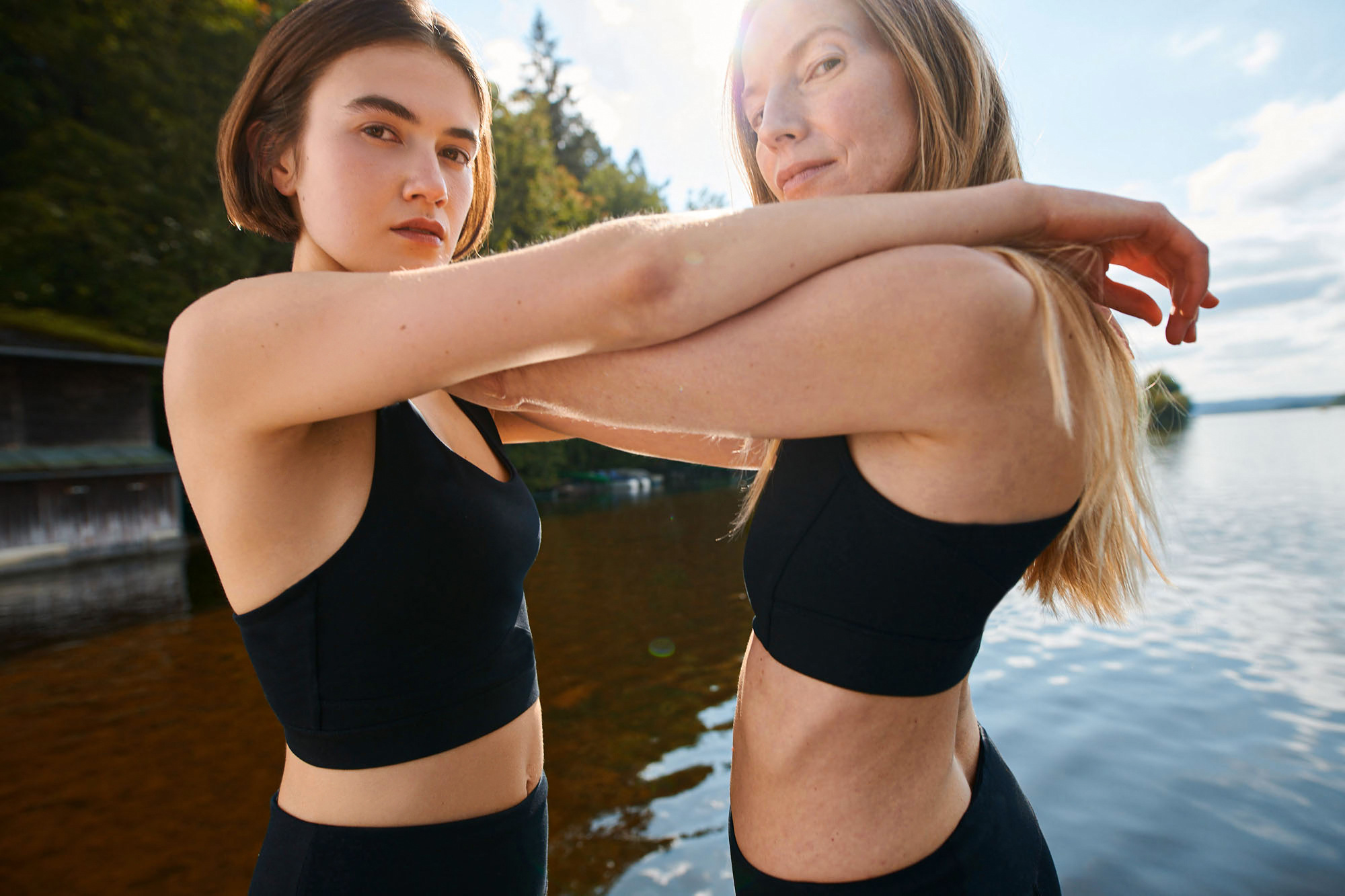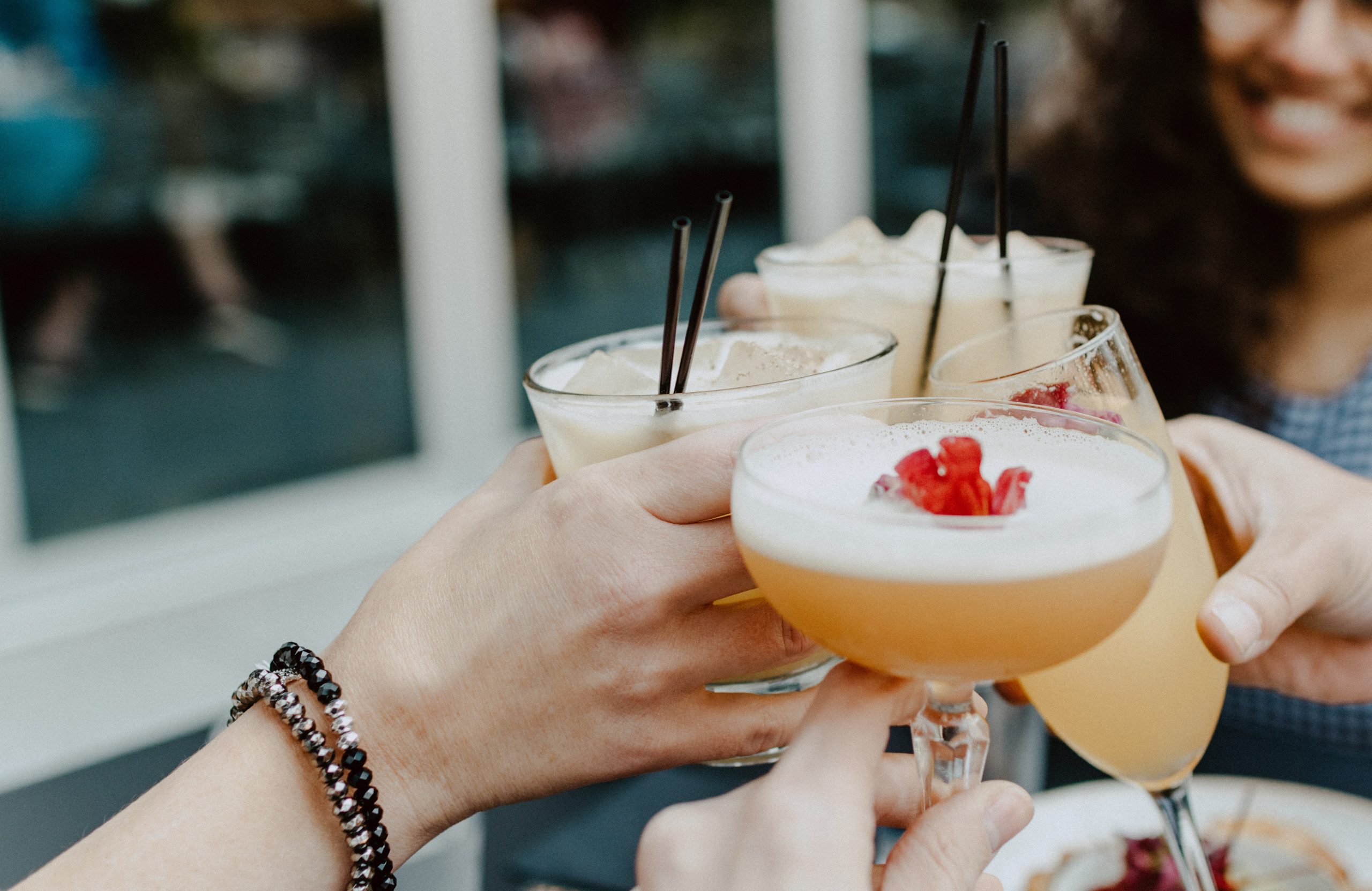Madeby_ is a new fashion discovery platform that combines blockchain-backed data with storytelling to provide a guide to ethical and sustainable brands around the world. Its mission? To reshape shopping habits and connect shoppers to the makers of the clothes they love. Founder and fashion entrepreneur Paola Masperi tells us her story.
Paola, what is Madeby_ and how does it work?
Madeby_ gives shoppers the stories behind the products and verifies the eco-credentials of every brand through a unique tagging system.
Instead of having to navigate complex and confusing sustainability messaging, consumers can easily identify what stands up to scrutiny, so they can shop with confidence.
We match brands and products with shoppers to create a personalised experience. Mindful shoppers can access a brand’s website directly or browse individual products.
They can also track the progress over time of brands from around the world, including the UK, US, India and Africa.
We are also working on embedding circular economy principles at the heart of the platform, so people can choose to engage with brands in several ways: buying new, second hand or renting for example.
All the information provided by brands is recorded on our blockchain-backed system, which means it cannot be tampered with. This allows us to have one transparent and unequivocal source of truth. It also gives us a ‘point in time’ view, that allows us to go back and track progress over time.
What inspired you to launch Madeby_?
As a brand founder with my Mayamiko label, I know how hard it is to do things in a socially and environmentally responsible way and get your message across in a way that resonates, especially when you don’t have a huge marketing budget.
I wanted to open this up and make sure transparency was democratised and accessible to brands regardless of size and budget, levelling the playing field, so to speak.
Making sure makers’ stories come to the fore and combining them with rigorous credential verification is at the heart of my mission. It’s my contribution to making the industry more transparent and accountable
What is Madeby_’s ‘Honesty Framework’?
Our Honesty Framework is, if you like, the architecture on which Madeby_ is built. It is the system that we use to capture and classify data based on the existing legislation across UK and EU.
It helps us simplify complex sustainability information into a value system using blockchain and AI technology to extract, tag and validate eco claims.
A brand or product will only receive the ‘Madeby_ verified’ logo if its environmental and social claims can be verified and backed by data.
As this field is fairly recent, the Honesty Framework will continue to evolve fluidly to stay on top of legislation and industry innovation. We hope stakeholders can help us improve it and feel a sense of ownership too.

What brands can we find on the platform?
We have well-known labels such as People Tree and Elvis & Kresse but size and turnover are no barrier. Independent makers, artisans and small brands are featured alongside international luxury houses and given the same chance to tell their stories in their own words.
This means that small companies such as Guatemala-based Hiptipico, which showcases the work of Mayan artisans, and Laos-based Article22, which makes jewellery out of landmines, can connect more deeply with consumers by educating them on the skills, craftsmanship, traditions and ethics of their products.
My favourites include Kenya-based homeware and baskets brand Mifuko, sustainable and trendy sunglasses from Pala Eyewear, and statement conversation pieces from London-based Gung-Ho, a size-inclusive womenswear label.
How does a brand get listed with you?
We are still working in pilot mode with a small number of brands. Brands can get in touch with us at info@madeby.earth to join our pilot.
As you can imagine the complexity of the challenge is no mean feat. We have been lucky enough that Innovate UK believed in us and awarded us some funding.
We are also testing ways to automatically lift public information that brands have made available on their communications channels.

You also founded the womenswear and lifestyle brand Mayamiko. Can you tell us more about it?
Mayamiko is a responsible fashion brand fusing modern design and traditional techniques.
We produce clothing, accessories and homewares made by talented artisans all over the globe.
Our collections are cross-seasonal and celebrate cultural stories and traditions, whether it’s embroidery from Sri Lanka, up-cycled silk from Italy, or lovingly made products by our team of artisan makers in Malawi.
With our charity Mayamiko Trust, we work with women to support them in accessing the tools they need to thrive, be it training, access to finance, jobs or feminine health.
What are the main challenges of growing an ethical fashion brand?
Hmm. There are quite a few as you can imagine! I think the main one is how to navigate business growth with a model that truly has social and environmental justice at its essence.
Needless to say, the pandemic, the current cost of living crisis as well as the wider climate crisis have required us to constantly evolve and adapt.
From our zero-waste design approach, made-to-order, modular dressing, seeking out environmentally sound fabric options, to embracing circularity through rental and resale partnerships, we are constantly evolving.
Every time you evolve, it’s a bit like a chrysalis coming out of its cocoon – it’s a delicate process, not without its risks, but necessary to keep reinventing yourself without losing your essence.
How problematic do you think ‘greenwashing’ is in the fashion industry?
Greenwashing’s deceitful nature puts a shiny cover over everything problematic in fashion (and other industries), such as human rights abuses, environmental destruction, artificially induced overconsumption and built-in obsolescence.
Having a clear, transparent and holistic view of where a brand stands, gives consumers the tools they need to make choices and helps stakeholders lobby for positive change. This is why regulators are so interested in the topic.
Addressing greenwashing doesn’t automatically solve all problems but removes this thin veil that covers so much bad practice and has been allowed to carry on in the shadows for such a long time.

You were born in Italy and have lived around the world, including Switzerland and Malawi. How has this shaped you as a businesswoman?
I think it has created in me an openness of mind, a propensity to listen rather than talk and create long-lasting partnerships of equals.
For example, rather than thinking in terms of ‘suppliers’, or ‘clients’ I only think of partners. In complex supply chains like fashion, one is embroiled in many social and environmental complexities. We are only as strong as the weakest link in the chain. Equally, if every link in the chain thrives, then we all do.
It also made me very curious and receptive to learning from anyone that crosses my path. It’s kept my creativity growing with every new encounter, every new place, new tradition or innovation I come across.
It also means I am fortunate enough to have friends (or second families) in many places, and everywhere feels a bit like home – which is such a lovely feeling.
As an innovator yourself, what do you think the next technical development will be in sustainable fashion?
There are so many exciting directions from amazing innovators. I am keeping my eyes on a few things. Firstly, circular models that extend the life of garments beyond rental and resale: care, mend, modify and modular design. Secondly, recycling technologies at scale.
Then there is the convergence of digital and physical, be it in this dimension or the metaverse, and how Web3 (which aims to put the web in the hands of its users and community) can help us create more equitable business models that reward creativity and craft fairly.

Head on over to Madeby_ for all the latest updates and be sure to check out Paola’s womenswear and lifestyle brand Mayamiko.
You can also follow the team on Instagram.







